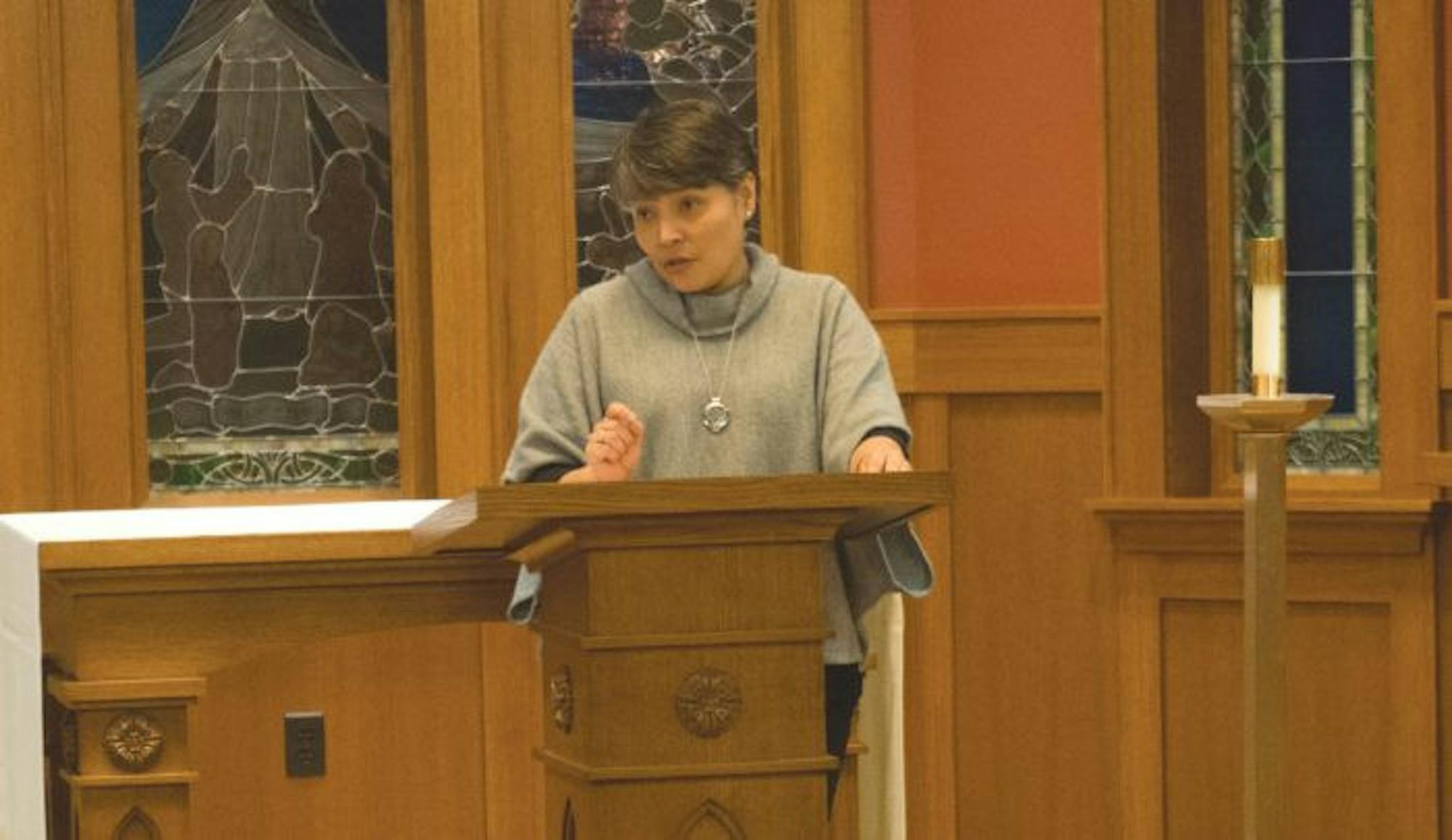
Members of the Notre Dame, Saint Mary’s and Holy Cross College community gathered in the Geddes Hall chapel on Monday for a prayer service in honor of recipients of the Deferred Action for Childhood Arrivals (DACA) program.
Hosted by members of the “Advocacy for the Common Good” — a one credit course that aims to inform students of advocacy tools and mechanisms — the prayer vigil featured two speakers, Juan Constantino, development director of program staffing at La Casa de Amistad, and Becky Ruvalcaba, assistant director of multicultural ministry in Campus Ministry. The course, offered by the Center for Social Concerns, is taught by Michael Hebbeler, the Director for Discernment and Advocacy at the Center for Social Concerns, focuses on the building of a DREAM Act campaign as a focal point for the class to rally behind.
The timeline of the class’s advocacy strategy was altered with the announcement that the congressional vote was moved up from March 8 to Thursday.
Freshman Grace Stephenson, chair of the event team, said the class chose a prayer vigil as its platform of advocacy because it embodies the Catholic identity of the University.
“This is not a protest but a chance for the community to come together in solidarity for the 40 plus DACA students on the three campuses,” Stephenson said.
Jackie Navarro, a junior at Holy Cross College and member of the event planning team, said this issue is a big part of the campus identity.
“We can’t just be Catholic by name,” Navarro said.
Following an opening prayer, Ruvalcaba spoke on the definition of an eligible DACA candidate. She provided the government definition and then incorporated scripture.
“There’s a moral and spiritual commitment we all have a role to play,” she said. “Regulation and security are necessary, but Catholic social teaching dictates that all initiatives be oriented for the common good.”
Costantino followed with his own testimony as an recipient of DACA. He told stories of growing up in South Bend with the constant fear of deportation and the opportunities Holy Cross provided him with scholarships.
“Like many other DACA recipients, I’m the member of a mixed family with undocumented, DACA registered and citizen members.”
The prayer service concluded with a prayer to St. Frances Cabrini, the patron saint of immigrants.
Stephenson said one of the biggest obstacle with the nature of advocacy is increasing participation when not everyone has a personal stake in the issue.
Junior and member of the event team, Rathin Kacham, said he is a DACA recipient himself, having immigrated from India. He said he credits the support he’s received on campus with having encouraged him to become more public about his status as a DACA recipient.
“We all probably have friends who are on DACA and don’t want anyone to know,” Kacham said. “There’s a fear that comes with that status, but it also can be liberated.”













